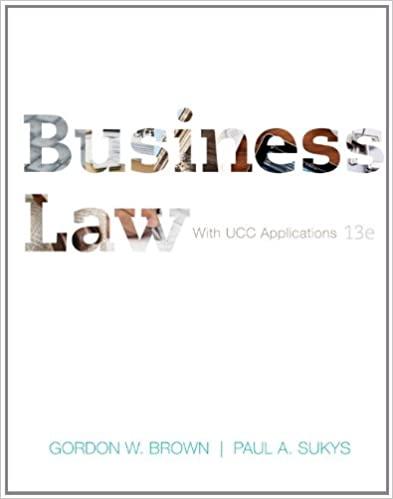Ethical codes of conduct are helpful standards that develop general guidelines for the conduct of professionals. However,
Question:
Ethical codes of conduct are helpful standards that develop general guidelines for the conduct of professionals.
However, they are frequently limited in their application because of their length, their complexity, and their ambiguity. A case in point is Rule 8. 5 of the Ohio Rules of Professional Conduct for Attorneys. This rule dictates that the rules themselves will apply in multijurisdictional cases to the jurisdiction in which the lawyer “reasonably believes the predominant effect of the lawyer’s conduct will occur.” Of course, the complexity of multijurisdictional transactions and the ambiguity of the phrase “reasonably believes” leave the rule open to a wide variety of interpretations. Consequently, the jurisdiction with the “predominant effect” may not be immediately self-evident.
Explain how the theory of utilitarianism might help clear up the ambiguity inherent in this situation.
Now explain how utilitarian principles might deteriorate into utility thinking in this situation.
(See “Ohio Professional Conduct Rule 8. 5 Discipline Authority; Choice of Law.” See also:
Deborah L. Rhode, “Legal Ethics on a Global Scale,” The National Law Journal, September 20, 2010, p. 38. )
Step by Step Answer:

Business Law With UCC Applications
ISBN: 9780073524955
13th Edition
Authors: Gordon Brown, Paul Sukys





